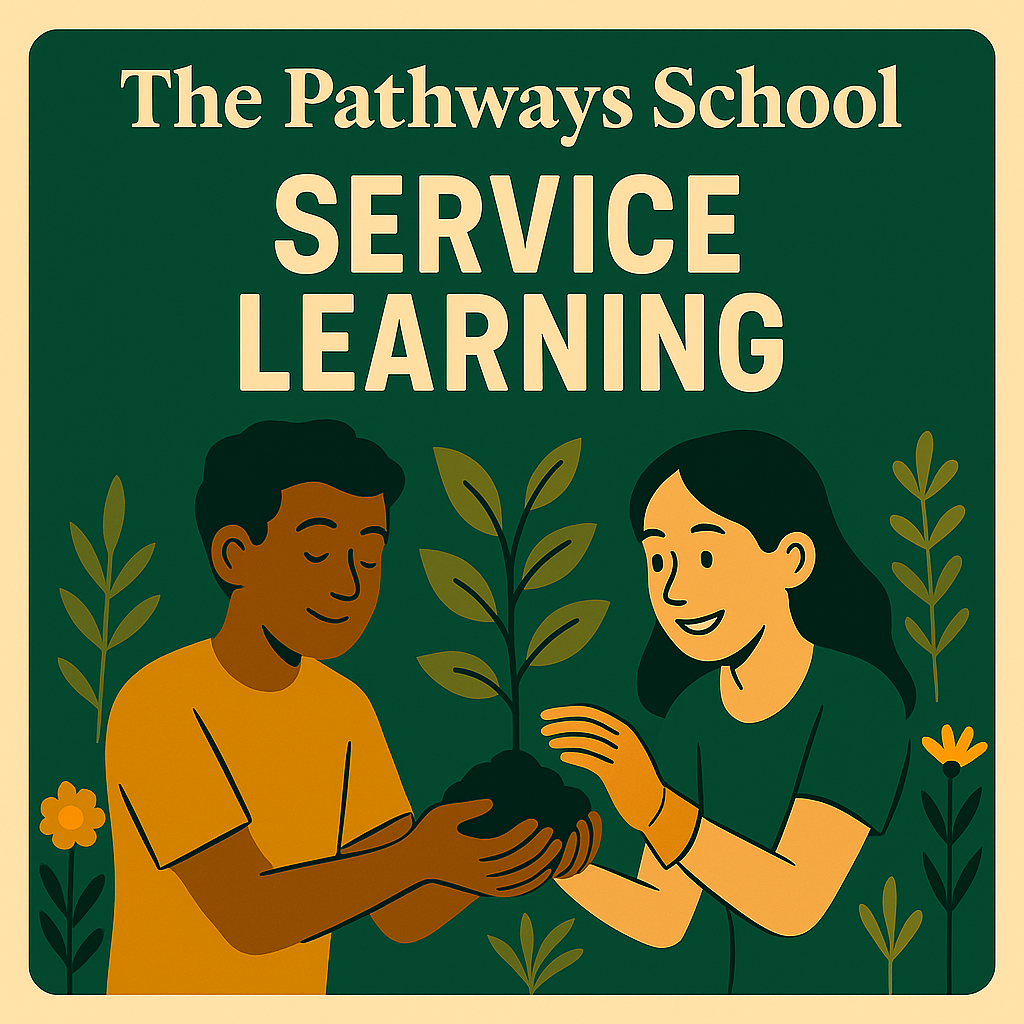Service Learning: More Than a Side Project
How a service trip to Nepal shaped my view of education, community, and the future of learning at Pathways.
I’ve been fortunate, over my career, to take students on multiple overseas trips. Some have been primarily cultural — like Japan or Prague — and others have been focused on what’s often called “service learning”: giving back to a community less fortunate than our own, while learning from them in return.
One trip in particular stands out — an experience that brought about real, tangible change in people’s lives: an orphanage for deaf and blind children in Pokhara, Nepal.
We spent months preparing. We mapped out clear curricular links so that what we learned in the classroom would come alive on the trip. We studied Nepal’s history, its customs, and daily life. We raised awareness in our local community, organized fundraising drives, and collected sorely needed reading materials to send ahead. Donations allowed us to purchase whiteboards for the school — tools they had been struggling without — and we shipped over boxes of books from Hong Kong before we arrived.
That preparation mattered. Understanding the culture and history meant our time in Nepal wasn’t just about “helping” — it was about connecting. When we met the students, we could share our own customs and language with genuine mutual respect, even with the unique challenges of communication. Many of the children we met could not see or hear, or both. Yet when words failed us, something else happened: a friendly football match broke out. In that moment, barriers dissolved. Laughter, teamwork, and joy became the universal language.
That trip had a lasting impact on everyone involved — the children and teachers in Nepal, our students in Hong Kong, and me personally. And it leaves me wondering: why don’t we place more emphasis on service learning in schools? When done well, it’s an extraordinary way to put knowledge into practice, deepen cultural understanding, and nurture empathy — all while making a meaningful difference.
At Pathways, we aren’t treating this as an “extra” or something that happens only in a special week once a year. We are weaving it into our foundation. Students will be asked questions like:
How will this project impact my community — and communities elsewhere?
How can I design a project for meaningful, lasting impact?
Should I always aim for large-scale change, or can smaller, local efforts be just as important?
How do I choose which communities or causes to partner with?
These questions are part of what we call the project learning process — the same design-thinking approach we use across all subjects.
And the research backs this up. A meta-analysis of 62 studies on service learning found statistically significant positive effects on students’ academic achievement, civic engagement, and personal growth — especially in self-esteem and problem-solving skills (Celio, Durlak, & Dymnicki, Journal of Experiential Education, 2011). Another study from the National Youth Leadership Council found that students involved in well-designed service-learning are 22% more likely to vote and twice as likely to volunteer in adulthood than peers without such experiences (NYLC, Growing to Greatness, 2010).
Our Global Partnership Program is one way we’re putting this into action. Imagine a group of Pathways students traveling to Ethiopia to work alongside coffee farmers, learning about ecology, economics, and culture — and then bringing the beans back to Spain to roast and serve in a student-run café on campus. Or working in Andalusia’s olive groves, studying regenerative agriculture while developing fair-trade partnerships. Each project would connect classroom learning to lived experience, building skills and relationships that last a lifetime.
For us, this isn’t about charity. It’s about reciprocity. We go to learn as much as we give, to build relationships, and to understand the interconnected systems that shape our world. That’s the kind of education that prepares young people not just for university or work, but for thoughtful, engaged citizenship.
I’ll be sharing more soon about how Pathways is rebranding “service” into something deeper, more integrated, and more relevant to the lives of our students. In the meantime, I’d love to hear your thoughts: What’s the most meaningful project you’ve ever been part of, and what did it teach you?
Warmly,
Rob
Founder & Director, Pathways
About Rob & The Pathways School
Rob Wilson is an educator, writer, and father of two with over 20 years of experience in international, progressive, and experiential education. From rural Maine to Hong Kong, and now Spain, his journey has always revolved around one question: how can we help young people learn in ways that are meaningful, joyful, and truly prepare them for the future?
Born out of this question, The Pathways School is Rob’s answer. Launching in Southern Spain in 2027, Pathways is a high school that blends personalized, project-based learning with real-world readiness and ecological living. At Pathways, students design their own educational journeys—with the guidance of mentors, experts, and peers—rooted in curiosity, purpose, and deep connection to the world around them.
To follow the journey or get involved, subscribe to the blog or reach out. Let’s build something better—together.
